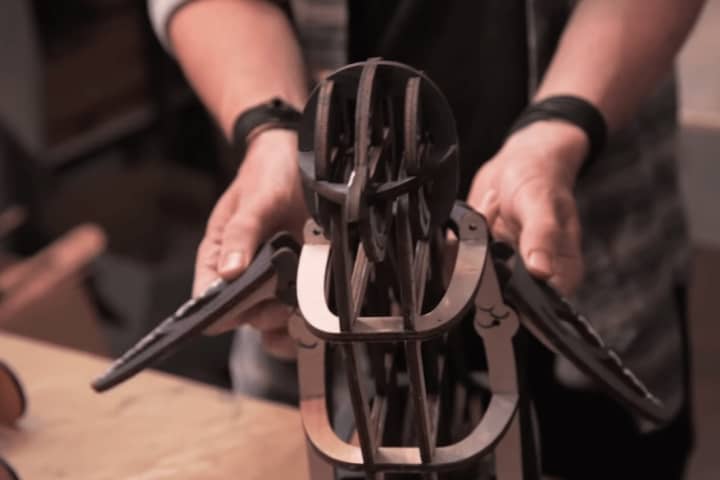When did you first come across the story of Storm Boy?
I read the book in primary school, so I was familiar with the story and the latest movie was on in the cinemas, so we went along and watched that just before I auditioned for this role.
What does this story mean to you personally?
Even though I had read the book and seen the movie, I hadn’t really developed a personal connection or true understanding of the story until our first read through with the rest of the cast and crew. At that point, the writing really made a connection to me, and I’ll admit I got a little emotional at a couple of stages!
I’ve really felt drawn to the different layers within the story, and to how the relationships begin and change throughout.
How do you inhabit your character? Does Storm Boy have specific gestures, movements, facial expressions or habits?
A lot of the story is about my relationship with our pelicans, so a lot of my gestures and movements are directed at teaching my pelicans how to behave, to fetch, and even to eat. It’s been great having our creative team help me convey those gestures to the puppets to help the audience believe I’m feeding and teaching actual pelicans.
Can you tell us about your rehearsal experience at MTC so far? What’s it like working with this cast and creative team?
Everyone has been brilliant and we have so much fun, but when it's time to work we all put in 110%. It’s been an absolute honour to work with everyone, and I’ve learnt so much already from a group with so much experience who’ve been successful for such a long time. I have also felt from the beginning that my opinion is respected, and everyone has been so supportive in helping me develop the confidence to really grow into the role.
How does your character grow during the course of the play?
At the beginning, Storm Boy lives a fairly simple life with his dad; he does chores, they fish and he loves to treasure hunt. Meeting Fingerbone Bill and the baby pelicans provides a whole new experience that he dives right into and, as the story progresses, and as his relationship with his dad changes, I get to experience a whole range of emotions and feelings throughout the story. He starts out as the child, but he soon grows to be a carer, a friend, and a teacher.It is clear he has grown a lot since the opening scene.
How important is experimentation and improvisation in rehearsal for you, in regards to interpreting the script and characters?
Watching and listening to the cast and crew work tobring the script to life has been a real highlight for me from the start. I’ve been blown away by the effort that goes into the interaction between characters, between puppets, and also that of the whole set in bringing the story to the stage. It is so well written, and the creative team have made sure the relationships on stage will really touch the audience.
Do you have a favourite line from the script?
There are too many to choose from, ones that make you laugh and also ones that make you cry. I think Fingerbone Bill certainly has the best lines, but Hideaway Tom has some really awful dad jokes!
What do you love about working with the puppets?
The pelicans are amazing, and the puppeteers have certainly given each one their own individual personality! Our puppeteers make it look like I’m getting up close and personal with a real live pelican, and during rehearsals it can sometimes be easy to forget they are puppets that are magnificently constructed by lots of bits and pieces! We also have snakes, fish, crayfish, and I don't want to ruin anything, but the penguins are hilarious!
Published on 13 June 2019





